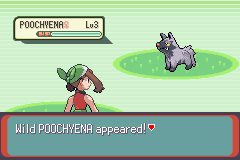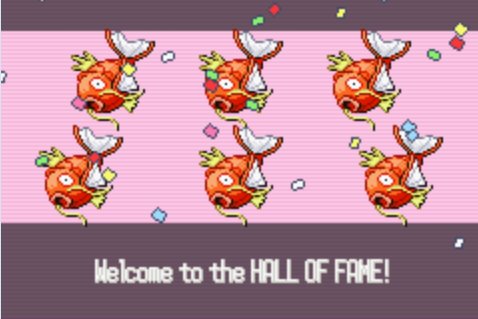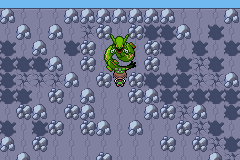Pokémon and The Trap of "Creative Genius"
I spend a good deal of time keeping up with the latest news in the world of computer games. They’re one of my bigger interests, and they’re a big reason why I chose to major in Computer Engineering. Despite that, I don’t usually talk about topical news much in this website — it generally has too short a shelf-life to be useful. But today something came up that spurred me to break this silence — Nintendo released a trailer for the new Pokémon games.
Before we get to that, let me tell you why this trailer spurred me to talk about it, starting with a bit of background on the Pokémon games. The basic premise of the games (for those who have been living in the Mongolian jungles for the past twenty years) is that you play as a child who lives in a world inhabited by creatures called — you guessed it — Pokémon. You can catch these Pokémon in a device called a Pokéball, train them, and use them to fight other Pokémon trainers, and it’s your job to go off on an adventure to become the Pokémon Champion.

Woof! – Image Source
The games have always been primarily free-form. While the general path was set for you — you had to beat the eight Gym Leaders, and work your way to the Elite Four, running afoul of some evildoers along the way — it’s your choice on how to go about it. Want to catch a small team of Pokémon and raise them diligently? You can. Want to catch every species you see and expand your collection? You can. Want to change and train a new team for each new situation? You can. Want to blitz through the game with nothing but a team of six useless carp? You can, if you can manage it.

This is a more skilled player than I.
The charm of the games came down to the world and the freedom you were given within it. The worlds were expansive, giving you plenty to do even after the main storyline was complete. You could try and catch every species of Pokémon, of which there are hundreds. You could link up with your friends, trading to fill in gaps in your collection, or battling to see which of you was the strongest. You could explore ancient ruins and mysterious caves, fight and capture powerful beasts spoken of only in legends.

The basis in mythology and adventure was a big driving force for the games’ sense of wonderment. – Image Source
More than anything else, this was, and still is, a very resilient series. This was the series that got me into gaming back in the late 90s and early 2000s, and it’s still going strong in the midst of a struggling games industry. A large part of this was the series’ willful rejection of the trends of gaming in general — instead of aiming for cinematic spectacle, an epic story, and strong visual fidelity, the games kept themselves deliberately conservative, keeping the story skeletal, the technology simple, and the cinematics nearly non-existent. This allowed a greater focus on what really mattered — the design and expansiveness of the world and the multitude of creatures in it. There were some spin-offs which pushed the series in other directions, but the main series never changed much of the core formula. Even when 3D was adopted, it was adopted gingerly, keeping the art style and overhead view the same.
And it’s with good reason they do this. These trends have brought ruin on several of gaming’s most classic series. The Legend of Zelda series has moved away from an action-focused exploration game to a game focused more around simplistic puzzles with greater emphasis on narrative, and its sales have plummeted. The Metroid series was single-handedly destroyed by Metroid: Other M, which took a series based around exploration of a alien world through a silent protagonist who was a bad-ass bounty hunter, and turned it into a soap opera where the not-so-bad-ass bounty hunter explores her maternal instincts while being subordinate to a man. Final Fantasy, probably the worst offender of the lot, took an RPG series with a simple plot, expansive worlds, and rich mythological background, and made it linear, taking away exploration and freedom, in favor of story and character development. Final Fantasy, one of the most popular game series back in the day, is now irrelevant to modern gaming.
Why do game developers do this? I suspect it’s in a misguided search for sophistication and respect. The temptation for the game developers to regard themselves as “creative geniuses” pushes them to value their own imagination above the player’s, and this inevitably means creating more elaborate art, generally at the expense of the expansiveness of the world, limiting a player’s freedom, their ability to shape their own stories, in favor of the story the designers have set up for them, and developing elaborate characterization which restricts player autonomy (Tadhg Kelly said it best: there is no such thing as a player character). This ends up destroying the very things that made the series successful in the first place.
Pokémon has generally been able to resist these temptations up to this point. But even in the last released set of games, Pokémon Black and White, there are some troubling signs that they may be falling into the same trap. There was a greater emphasis on story. It spent more effort on character development, spending time talking about the antagonist’s and rivals’ life and struggles. The obstacles that kept you from progressing were more forced and contrived — rather than being a rock or tree or lake in the way of the next town, it was often just a person saying “you can’t go that way” who would only move when the story deemed it appropriate. There were several areas of the game which served no purpose other than showing off the fancy 3D features. Even the world map seemed more artificial in comparison to the natural landscapes of previous games.
And then came this trailer, for the direct, story-based sequels to Black and White, Black 2 and White 2.
Now don’t be fooled. This is, in fact, a trailer for the new game, despite the fact that it looks like a trailer for one of the associated movies or TV shows. And yet, it shows nothing of the game itself, focusing instead on the characters and story. Compare it with this trailer for Pokémon Platinum, released back in 2009, which is focused entirely on the game itself.
Taken alone, each of these signs wouldn’t be too alarming. But when brought together, it shows a series at risk of falling into the trap of “creative genius”. We’ll have to wait and see what happens, but should my suspicions prove true, we risk losing one of the last bastions of true gaming.